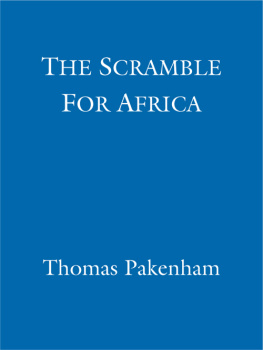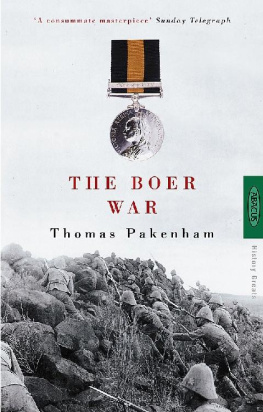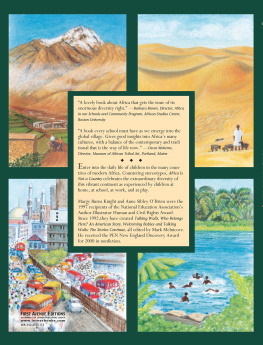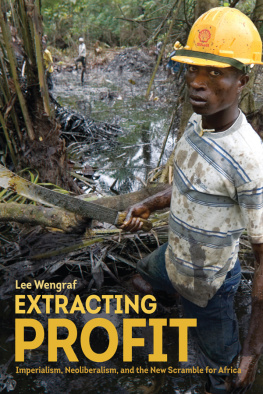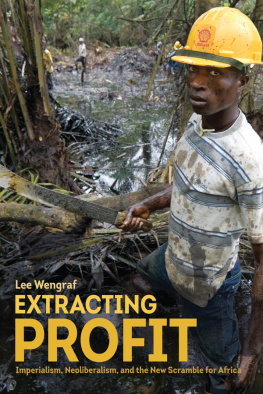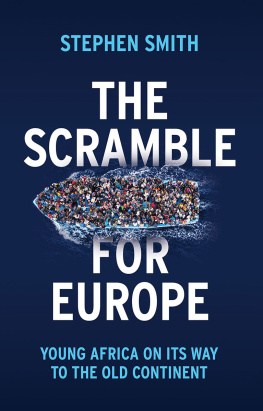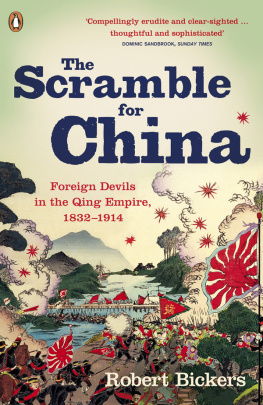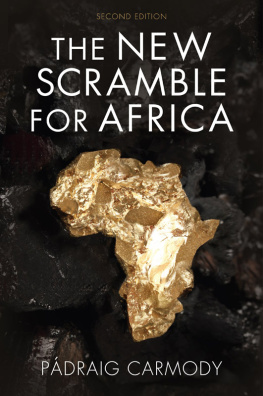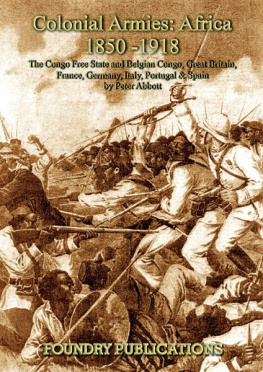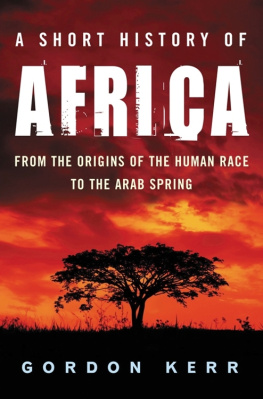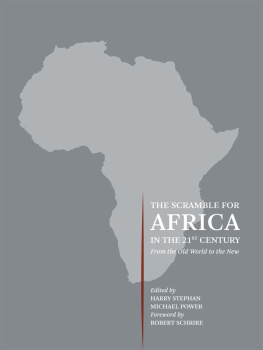Contents
Prologue
The Crowning Achievement
Ilala, Central Africa
21 AprilMay 1873 and after
1 Leopolds Crusade
Brussels
7 January-15 September 1876
2 Three Flags Across Africa
Central Africa and Europe
14 September 1876June 1878
3 Two Steps Forward
Transvaal, Cape Town, Natal
12 April 187712 January 1879
4 The Crouching Lion
London, Zululand, London
November 18782, 2 January 1879
5 Ismaels Dream of Empire
Egypt and the Sudan
18 February 1879June 1880
6 One Step Backward
South Africa and London
16 December 18803 August 1881
7 Saving the Bey
Paris and Tunis
23 MarchNovember 1881
8 Saving the Khedive
London and Egypt
31 December 1881October 1882
9 The Race for the Pool
Europe and Central Africa
30 May 1882April 1883 and before
10 Head in the Clouds
The Upper Niger and France
1 FebruaryJuly 1883
11 Hewett Shows the Flag
London and West Africa
January 188319 July 1884 and before
12 Why Bismarck Changed his Mind
Germany, Africa and London
19 May 1884November 1884
13 Too Late?
The Sudan
26 September 188426 January 1885
14 Welcome to a Philanthropist
Berlin, Brussels and London
15 November 188427 February 1885
15 Gordons Head
England, Egypt, Sudan and elsewhere
5 February 18858 June 1885
16 The Sultans Flag
England, Zanzibar and East Africa
8 JuneDecember 1885
17 Cries from the Heart
East Africa and England
25 September 1885December 1886
18 Dr Emin, I Presume?
Brussels, Congo, Equatoria and German East Africa
29 December 1886January 1890
19 Salisburys Bargain
England, German East Africa and Germany
June 1888July 1890
20 An Insubordinate Army
Paris and the Western Sudan
12 August 1890November 1893
21 A New Rand?
Mashonaland and Matabeleland (Rhodesia), Cape Colony, the Transvaal and England
27 June 1890December 1892 and before
22 Msiris Mocking Smile
Brussels and Katanga
19 April 1890October 1892
23 The Flag Follows the Cross
Uganda, Paris and London
25 December 1891November 1892
24 An Ivory War
The Congo and Brussels
August 1892Summer 1894
25 Blank Treaty Forms on the Niger
Paris, London and West Africa
5 September 1894January 1897
26 A Lions Share
Eritrea, Italy and Ethiopia
26 September 1895January 1897
27 Rhodes, Raiders and Rebels
Birmingham, Rhodesia and the Transvaal
August 18951897
28 Calling Hanotauxs Bluff
London, Paris and West Africa
1 January 189614 June 1898
29 The Race to the Middle of Nowhere
Brussels, the Congo, French West Africa, the Sudan and Ethiopia
5 May 18971 September 1898
30 The Mahdis Tomb
The Sudan, Paris and London
1 September 1898May 1899
31 Milners War
London and South Africa
8 September 189931 May 1902 and after
32 The Severed Hands
Brussels, London, Paris and the Congo
16 May 1902February 1904
33 The Kaisers First War
Berlin and German South-West Africa
18 January 1904 and after
34 Maji-Maji!
German East Africa
July 1905 and after
35 Redeeming the French Congo
French Congo and Paris
29 April 1905 and after
36 Restoring Britains Old Ideals
Britain, the Transvaal, Natal and British East Africa
December 1905 and after
37 Leopolds Last Throw
Brussels, Washington, London and South Africa
3 June 1906 and after
Epilogue Scrambling Out
Zimbabwe, Africa and Europe
18 April 1980, before and after
Vast, scholarly and delightful
Spectator
Pakenham tells the story with pace and compulsive readability no historian could hope for a more wonderful subject, and Pakenham has done it proud conceived on a grand scale with all the colour and control of a master artist
Evening Standard
Once again Pakenham shows a dazzling, almost filmic ability to tell a good story, cutting from colony to metropolis and back to keep the action flowing
Independent on Sunday
Masterly, full of pace and character
TLS
Livingstone approaching Chitambos village, April 1873 from Livingstones Last Journals, edited by Horace Walle

Sinking a shaft for a goldmine at De Kaap. Photograph by Robert Harris 1888 (Hulton Picture Company)

Thomas Pakenham is the author of The Mountains of Rasselas, The Year of Liberty and The Boer War. He divides his time between a terraced house in North Kensington, London and a crumbling castle in Ireland.
THE MOUNTAINS OF RASSELAS
THE YEAR OF LIBERTY: THE STORY OF THE GREAT IRISH REBELLION OF 1798
THE BOER WAR
Published by Abacus
ISBN: 978-0-349-14193-0
Copyright Thomas Pakenham 1991
The moral right of the author has been asserted.
All rights reserved. No part of this publication may be reproduced, stored in a retrieval system, or transmitted, in any form or by any means, without the prior permission in writing of the publisher.
The publisher is not responsible for websites (or their content) that are not owned by the publisher.
Abacus
Little, Brown Book Group
Carmelite House
50 Victoria Embankment
London EC4Y 0DZ
www.littlebrown.co.uk
www.hachette.co.uk
The massacre of the Manyema women at Nyangwe, 15 July 1871 (From Livingstones Last Journals)
Part titles
For Val
and in grateful memory of
Gervase Mathew and Asserate Kassa
who together introduced me to Africa
All I can add in my solitude, is, may heavens rich
blessing come down on every one, American,
English or Turk, who will help to heal this open
sore of the world.
David Livingstones last words inlaid in brass on his
tomb in Westminster Abbey
T he Scramble for Africa bewildered everyone, from the humblest African peasant to the master statesmen of the age, Lord Salisbury and Prince Bismarck.
Ever since Roman times, Europe had been nibbling at the mysterious continent to the south. By the mid-1870s, much was still mysterious. It was known that Africa straddled the equator with uncanny precision. But no explorer had penetrated far along the dangerous latitude of zero towards the interior. No one knew which was Africas greatest river or where it led. Europeans pictured most of the continent as vacant: legally res nullius, a no-mans-land. If there were states and rulers, they were African. If there were treasures they were buried in African soil. But beyond the trading posts on the coastal fringe, and strategically important colonies in Algeria and South Africa, Europe saw no reason to intervene.
Suddenly, in half a generation, the Scramble gave Europe virtually the whole continent: including thirty new colonies and protectorates, 10 million square miles of new territory and 110 million dazed new subjects, acquired by one method or another. Africa was sliced up like a cake, the pieces swallowed by five rival nations Germany, Italy, Portugal, France and Britain (with Spain taking some scraps) and Britain and France were at each others throats. At the centre, exploiting the rivalry, stood one enigmatic individual and self-styled philanthropist, controlling the heart of the continent: Leopold II, King of the Belgians.

